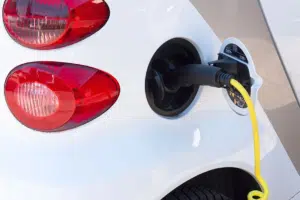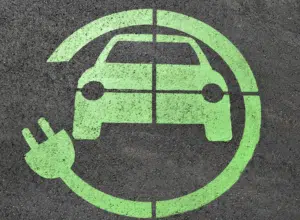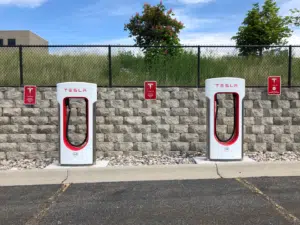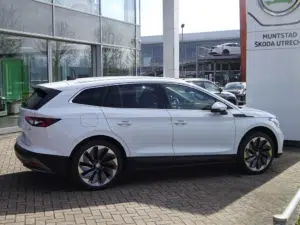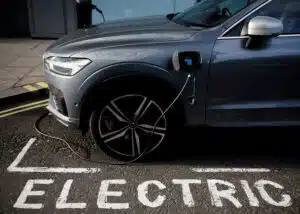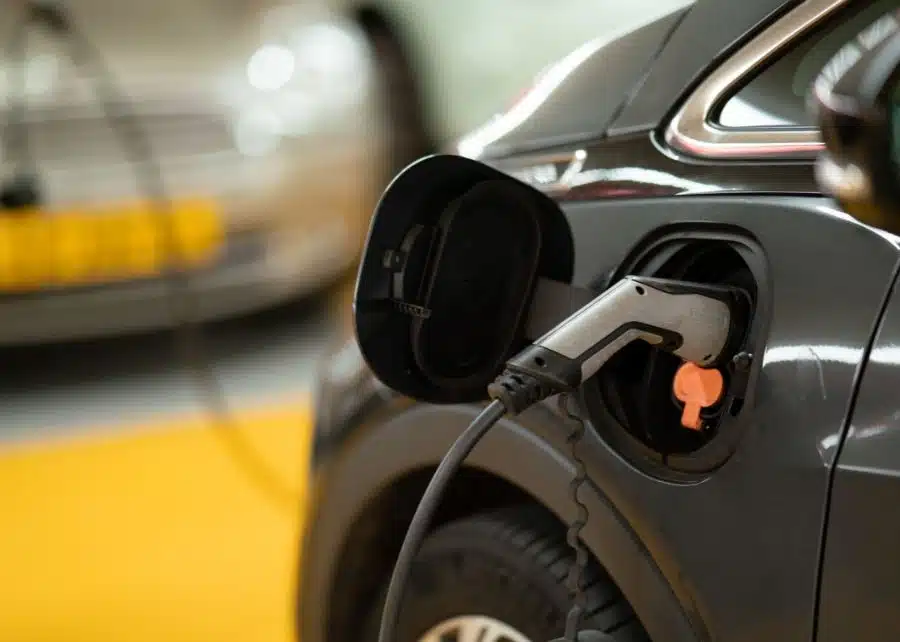
What factors can affect your EV range?
Some factors that affect EV range are:
- The size and capacity of the battery. Larger batteries can store more energy and provide longer range, but they also cost more and add weight to the vehicle.
- The type and efficiency of the electric motor. Different electric motors have different power outputs and energy consumption rates, which affect how far they can propel the vehicle.
- The driving conditions and behaviour. Factors such as speed, terrain, traffic, weather, climate control, and driving style can influence how much energy the vehicle uses and how far it can go.
- The charging options and availability. The frequency and duration of charging can affect how much range you have at any given time. You may also need to consider the availability and compatibility of charging stations along your route and at your destination.
To determine how much EV range you really need, you might want to consider the following questions, according to the RAC:
- How often and how far do you drive? If you mainly drive short distances or infrequently, you may not need a lot of range. However, if you drive long distances or regularly, you may want more range to avoid frequent charging or range anxiety.
- What kind of driving do you do? If you mostly drive in urban areas or on flat roads, you may not need a lot of range. However, if you drive on highways or hilly roads, you may want more range to cope with higher speeds and elevation changes.
- How much can you afford to spend? If you have a tight budget, you may have to settle for less range. However, if you can afford to spend more, you may be able to get more range and other benefits, such as performance, comfort, and features.
Ultimately, the amount of EV range you really need depends on your personal situation and preferences. It can be a good idea to compare different EV models and their ranges, as well as their prices, features, and reviews, to find the best one for you.
How far do you really drive in a day?
The answer to this question depends on your driving habits, preferences, and budget. According to the U.S. Department of Transportation (DOT), the average U.S. driver travels about 37 miles per day.
However, this average differs per country and region. For example, according to Eurostat statistics, the average daily driving distance in Europe is 50-70 km per day. This means that most EVs have enough battery capacity to cover your daily needs without recharge during the day. However, if you drive more than that, you will need to search for some options to fulfill your needs.

Try this formula
Many automakers recommend charging your EV to 80% instead of 100% for two main reasons: battery health and charging performance, according to Electrifying.com.
- Battery health: By charging to 80%, you limit the amount of stress and heat on the battery cells, which helps to preserve their lifespan and efficiency. Lithium-ion batteries, which power most EVs, work best in ranges from roughly 20% to 80%. Charging beyond or below that range can cause degradation and overheating.
- Charging performance: By charging to 80%, you save time and energy, as charging rates slow down significantly past the 80% mark. This is because most EV chargers use a constant current (CC) mode until the battery reaches 80%, then switch to a constant voltage (CV) mode, which reduces the current gradually to avoid overcharging. The CV mode takes much longer to fill up the remaining 20% than the CC mode.
Therefore, charging to 80% is a good practice for most daily driving needs, as it can extend your battery life and reduce your charging time. However, you can still charge to 100% when you need the maximum range for a long trip or an emergency. Most modern EVs have a setting that allows you to choose the charging limit, so you can easily adjust it according to your needs, says Honest John.
How long is your car typically parked?
The answer to this question depends on the type of charger I use and the size of my battery. According to WhatCar?, there are three main types of chargers: slow, fast, and rapid.
- Slow chargers run at about 3kW and can take up to 36 hours to fully charge a large battery. They are usually used at home with a three-pin plug or a dedicated wallbox..
- Fast chargers run at either 7kW or 22kW and can take 3-12 hours to fully charge a large battery. They are often found in public places like shopping centres or supermarkets. They use an AC (Alternating Current) supply.
- Rapid chargers run at anything from 50kW to 350kW and can charge most electric cars to 80% in 20-60 minutes. They use a DC (Direct Current) supply and are usually found at motorway service stations or dedicated charging hubs.
The size of my battery also affects how long I need to park my electric car for charging. A typical electric car has a 60kWh battery, which can provide a range of around 200 miles. However, some electric cars have larger or smaller batteries, which can affect their range and charging time.
Therefore, the time you park your electric car for charging can vary from a few minutes to a few hours, depending on the type of charger I use and the size of my battery. You may prefer to use fast or rapid chargers when you’re on the road, as they can provide a quick and convenient boost of energy.

But bigger isn’t always better with EV batteries
Bigger EV batteries can provide more range and performance, but they also have some disadvantages too, says WhichCar?, such as:
- Higher cost: Bigger batteries are more expensive to produce and purchase, which can make EVs less affordable for some buyers.
- Longer charging time: Bigger batteries take longer to charge, especially if the charging power is limited or not compatible with the battery type. This can reduce the convenience and flexibility of EVs.
- More weight: Bigger batteries add more weight to the vehicle, which can affect its handling, braking, and efficiency. This can also increase the wear and tear of the tires, suspension, and brakes.
- Environmental impact: Bigger batteries require more raw materials and energy to manufacture, transport, and recycle. This can increase the carbon footprint and environmental impact of EVs.
Therefore, bigger is not always better with EV batteries. It’s always a good idea to consider your driving habits, preferences, and budget when choosing the battery size that suits your needs.




















